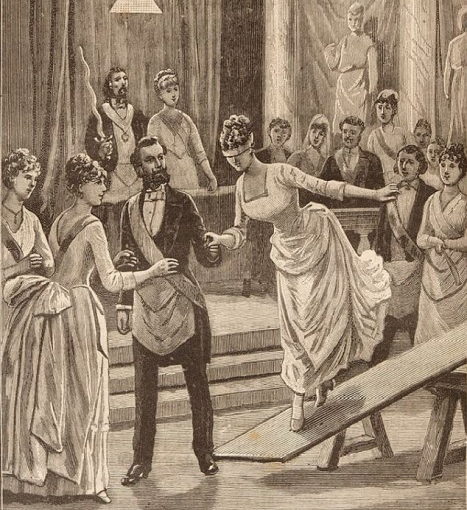- Salvador Allende – tra Massoneria e Marxismo - December 20, 2020
- The Masonic litigation of the Countess Barkóczy - September 1, 2020
I have learned about this unusual story of a XIX century woman Freemason, from an essay written by the Hungarian researcher and author László Vári. I believe it is a captivating account that deserves to be divulged by Tetraktys. The story is also available in Italian in my own blog, whereas the full original version is available here with the title: The Curious Case of Helene Hadik Barkóczy with the Freemasons”
***
The Barkóczys of Szala were the wealthiest landowners in Hungary. According to the law of the Land ,which dated back to the Middle Ages , the family’s property would pass on to its collateral branch in the absence of a male heir. Helene Hadik-Barkóczy , as the sole offspring of Count Janos Barkóczy, risked losing her estate. To preserve it within the family, her father János first established the primogeniture in favour of his daughter and later contrived to go through a legal process, established by royal grace, of “masculinisation” that in effect changed Helen’s juridical status to that of a boy.
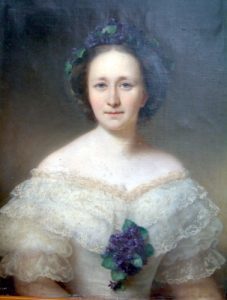
Countess Helene was exceptionally intelligent. She founded the Hungarian Historical Society; she had a strong interest in the arts and sciences and knew various foreign and classic languages, including Latin. Through her marriage to the Earl Béla Hadik – assistant general to Archduke Maximilian, future Emperor of Mexico – Helen had seven offspring. Her interest in Freemasonry came from both her grandfather and uncle ‘s precedent in Freemasonry and from the inherited family’s Masonic library. So deep was her enthusiasm for the Craft that she desired to join. Membership was denied to women, but her richness and her “masculinization” were elements that Helene believed would tip the balance in her favour.
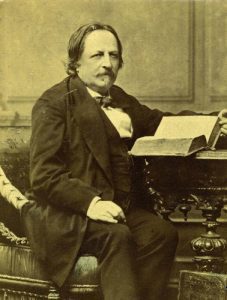
This desire for the “forbidden” fruit ,however, cost Helen to suffer the fate common to all emancipated women ; she constantly argued with her husband and was even locked up into the Döbling madhouse [2] asylum by him. But she escaped thanks to her aristocratic position and the circle of friends on whom she could count for help. Ferenc Pulszky was one of those individuals she knew. He was a relative of hers and also the Grand Master of the Grand Lodge of St John [3], founded in 1870, whose Constitutions did not mention the prerequisite of male membership. Through Pulszky , Helen contacted Eugene Tabódy, Master of the lodge “Equality” of the near municipality of Ungvár.
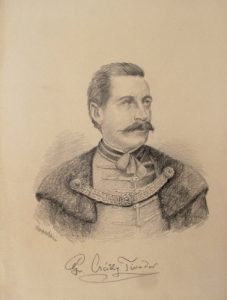
Pulszky had agreed to aid the Countess to seek admission although her application was to be submitted to a Lodge of the Grand Orient rather than St John of which Pulszky was Grand Master. Three years had passed by and the application had yet to be approved. Tabódy could not bring himself to take a decision and so he wrote to Grand Orient for guidance on how to “behave with the Countess”, indicating in his letter that the noblewoman was very interested in engaging in the Masonic experience. The Deputy Grand Master, Tivadar Csáky, replied by listing all the reasons women could not be received into Freemasonry. The argument included an array of stereotypes and preconceptions such as : a woman’s inability to keep discretion, female’s vanity, the power of seductive provocation and the extraordinary claim that “…the woman has no place next to the green table” thus drawing a parallel between the game of cards and Masonic work! The Countess protested that such absurd arguments should be employed to oppose her initiation and Csáky invited her, Tabódy and Pulszky to a private meeting in Budapest in December 1874 where the objections to the Countess’s admission were, nevertheless, renewed. Despite it all, in January 1875 Helene went ahead and applied the Grand Orient. In her letter she wrote that she had vowed before Pulszky never to divulge the Masonic mysteries she had learned from the books and from Pulszky himself (a claim that was later withdrawn), she reminded them that she had the juridical status of a man and pledged that she fully recognised that the Freemasons of the 33 degree – like Pulszky – were the indisputable rulers of the Order. She pointed out the precedent established in Freemasonry by the case of Elisabeth Aldworth [4], who had been admitted into a
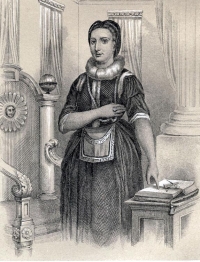
Masonic lodge after being caught spying on a ritual meeting. And to better support her application, Helene showed her ability to meet any Lodge’s financial dues by donating 500 Hungarian francs to the Fröbel Association of Kassa, a Masonic Charity. Unsurprisingly, her gesture was considered an attempt to bribe and on 10 January 1875 the Federal Council rejected her application.
Helene did not desist and sought the help of Julius Gyula Vezerle, a former lawyer and a man she trusted although a profane to Freemasonry. Pulszky provided Gyula with a Masonic passe-partout so that he could round up support for Helene’s initiation from within one or more Lodges. The strategy paid off and Géza Mocsary – the Deputy Master of the Lodge Equality that met in Ungvár, near the Countess’s castle in Paloc – managed to persuade ten of the lodge’s masters to
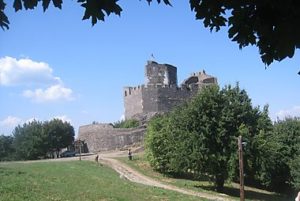
vote in favour of the Countess’ application. The initiation ceremony took place on 11th November 1875, attended by both Pulszky and Géza Mocsary. The latter, understandably unable to apply to the Grand Orient for a certificate, resolved by illegally printing one “ad hoc”.
However, the lodge minutes of that meeting disclose that Pulszky, mindful not to compromise himself, did not attend the entire ceremony. He remained outside and only entered the Temple before the closing of the ceremony so that he could greet the Deputy Master Mocsary. The business was of course to remain secret but Eugene Tabódy wrote a confidential note to the Deputy Grand Master of the Great Orient – Tivadar Csáky – and revealed everything. Csáky informed the Grand Master George Joannovics and a commission of inquiry was promptly set up. The investigators – headed by Emerich (Imre) Ivánka [5] (1818-1896) – identified those liable, but had to admit the Grand Orient had no competency in the matter.
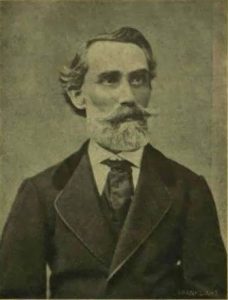
The inquiry called for the expulsion of the Deputy Master and of the three principal officers (the Lodge lights) plus ordered the suspension of six master masons, later exonerated. For the Lodge of Equality this was a serious blow from which it did not recover; it disbanded two years later.
But Pulszky’s ambiguity had paid off: although the Commission understood his involvement, it could not find evidence of his responsibility and in any case, by being the Grand Master of a different Grand Lodge, he could not be punished. In return for the let off Pulszky worked zealously to unify the two Grand Lodges, and he later became the first Grand Master of the Symbolic Grand Lodge of Hungary.
The Countess Helene’s initiation was not considered null, but her admission into Masonic Lodges got banned under penalty for the undiscerning Lodge, of losing the warrant and being dissolved. The Countess’s certificate was deemed invalid and she was summoned to return it within ten days. She never did.
The press – including the Masonic one – extensively reported the wrongdoing by citing conflicting opinions. In particular, the Viennese Masonic magazine Freimaurer Zeitung discussed in various articles the constitutionality of the whole matter. Supporters of the legitimacy of the initiation argued that the Constitutions of the Grand Orient did not spell out the candidate’s gender and that an initiation ought to be ruled out only in the event of immorality and intellectual immaturity of the applicant. For her part, the Countess invoked the Lodge’s sovereign powers on an initiation and that the Grand Lodge could cancel it only in extraordinary circumstances. Those circumstances were not met in her case because the Grand Orient could invalidate the “form” of the ceremony but not its “merit”.
What we see in this story is a curious paradox, i.e. the conflict between the Countess’s (emancipatory) claim that she had a right to affiliation based on the feudalistic institution (the praefectio or Helene’s legal “masculisation”) and its objection by the Freemasons who, if they upheld the Order’s ideal of civic equality, should not have refused it.
In closing, what do the Anderson’s Constitutions allude to with regard to the approbation of an applicant : the gender of the aspirant Freemason at birth , or that which is recognised in Law ?
(From an Italian version published by Francesco Guida, December 20, 2019)
NOTES
[1] Francis (Ferenc) Pulszky (1814-1897), son of a noble family. In March 1848 he became the first Hungarian Foreign Minister at the Court of Vienna. He was the Hungarian emigrants’ representative in Torino from 1860 to 1866. The Italian lodge in Turin – “Dante Alighieri”- initiated him in 1863. Soon he reached the Scottish Rite 33 degree, and after his return home he took part in the revival of Hungarian Freemasonry. He became Worshipful Master of the lodge “Einigkeit in Vaterland” (Unity in homeland) in 1868.
[2] “Hajnal”, Journal of Grand Orient of Hungary, IV. (1877) 2. 31.
[3] In 1871 some Hungarian Lodges of the Scottish Rite founded the Hungarian Grand Orient, and fifteen years later all other lodges in the Country, including the Grand Lodge of St John, combined and originated The Symbolic Grand Lodge of Hungary.
[4] Elizabeth Aldworth (1693/1695–1773/1775), born Elizabeth St Leger. In 1710 the Viscount Duneraile , a Freemason, was carrying out some repairs to Donaraile Court. One night the Viscount’s daughter, Elizabeth St Leger, awakened by the voices of the masons who were engaged in a meeting, decided to peep through a hole made in the wall , whilst at the same time causing noises herself and be found out. On trying to escape, she was caught by the Tyler and to ensure that the Freemason’s secret did not became public, she was initiated there and then. From thereafter she was sworn to silence.
[5] Emerich (Imre) Ivánka (1818-1896). In 1873 he was admitted to the lodge “Matthias Corvinus” and became master in the same year. Firstly Orator then Worshipful Master of the “Hungaria” lodge of Budapest in 1873. He got the 18, 30 and 33 degree Scottish Rite in the following year. In 1875 he was elected into the “Great Consistory” and became deputy chairman of the Federation Council. He was the investigator of Hadik-Barkóczy case and filled the Grand Master post of the Symbolic Grand Lodge of Hungary between 1896 – 1893
Nota: Vári, László: The Curious Case of Helene Hadik-Barkóczy with the Freemasons, https://www.academia.edu/37541604/The_Curious_Case_of_Helene_Hadik_Barkóczy_with_the_Freemasons”

